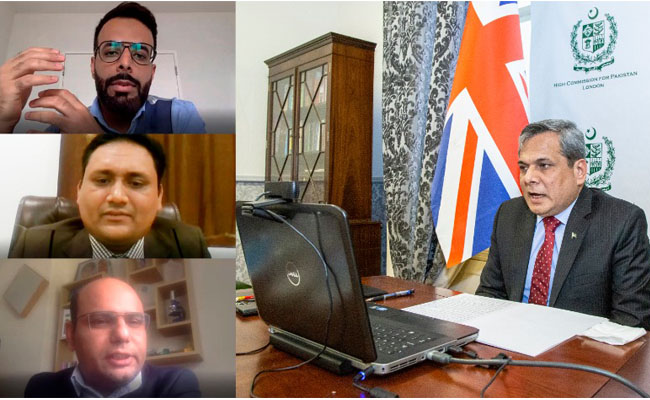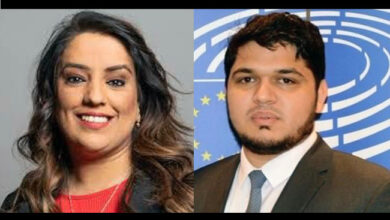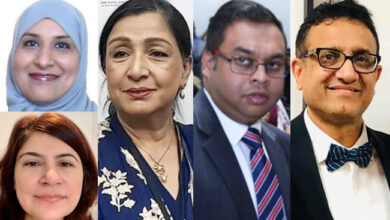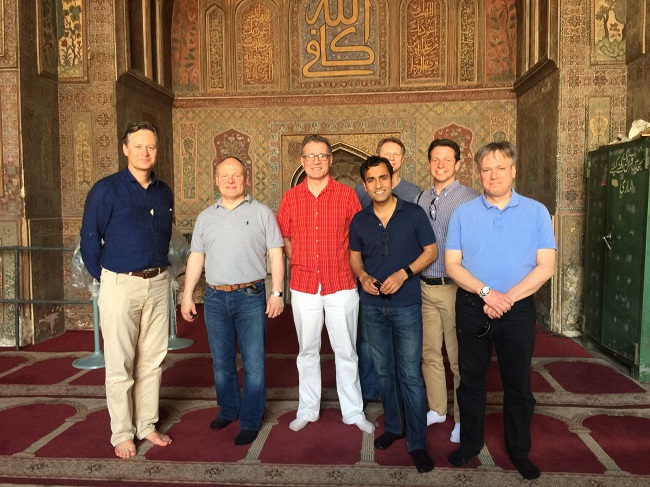International E-Conference “Promoting Applied Sciences in Pakistan”

High Commissioner says Pakistan’s talented youth to shape the future; urges country’s scientists abroad to exploit the opportunities
High Commissioner Mohammad Nafees Zakaria has said 64 percent of Pakistan’s population is less than 30 years of age which provides incredible human resource to shape the future of Pakistan in various fields including applied sciences and research. He has also invited the Pakistani scientists abroad to avail the opportunities in the country and nurture the precious young human resource for its progress and prosperity. He was delivering his concluding remarks at a two-day E-Conference entitled “Promoting Applied Sciences in Pakistan (PASP-20)” on 21 July 2020. The e-conference was jointly organised by NUST-Pakistan, University of Cambridge-UK and United Arab Emirates University. The High Commission for Pakistan, London sponsored the event.
The High Commissioner highlighted Pakistan’s rich history and resources as well as its contributions to the world of science. He shared with the participants that Pakistan is a signatory to the Scientific Committee on Antarctic Research (SCAR) since 1991. Pakistan’s scientific progress and achievements were recognised and it became an associate member of CERN in 2015, he added.

The High Commissioner said in order to promote the applied sciences in Pakistan, the first major step would be to gather Pakistani and foreign friend experts at one platform to identify areas of Pakistan’s strength and the country’s potential in those areas. He called upon Pakistan’s science & technology universities to take the lead and give practical shape to the ideas and concepts discussed at the e-conference. He recognised the importance of the role for the Government with policy emphasis, private sector and research institutions & foundations.
Mr Zakaria identified pharmaceutical, healthcare, recently emerged PPE sector, surgical equipment, semiconductors, metallurgy, IT, technology driven e-commerce, agriculture industry, gemmology sector, sports as the areas full of potential for research and growth.
The e-conference was themed at promoting applications of Science in various cutting edge research areas including Quantum Technology, Energy Harvesting, Space Technology, Superconductivity and Magnetism, Electronics, etc. The concept of the event was to give students and young researchers an exposure of recent developments in Science and Scientific Methods and Technologies.
The e-conference featured well-renowned scientists from various disciplines of Science around the globe who brought together a well-balanced mixture of scientific talks alongside their expertise and experiences.
Special Guests included Ch. Fawad Hussain, Federal Minister and Mushtaq Khan, Chairperson Senate Standing Committee.
Prof. Andrea C. Ferrari (Univ of Cambridge,UK) delivered key-note address. The speakers included Prof. Yoshiteru Maeno (Kyoto Univ, Japan), Prof. Deji Akinwande (Univ of Taxes, USA), Prof. Michael Steiger (Univ of Hamburg, Germany), Prof. Ahmed Abdala (Texas A & M Univ, Qatar), Dr Shingo Yonezawa (Kyoto Univ, Japan), Prof. M. Sabeih Anwar(LUMS, Pakistan), Dr Carlo Saverio Iorio (Univ of Brussels, Belgium), Prof. Jason Robinson (Univ of Cambridge, UK), Dr Lucia Gemma Delagu (Univ of Padua, Italy), Dr Giorgia Longobardi (Cambridge GAN Devices Ltd, UK), Dr Saleem Ayaz (Czech Republic), Dr Ali Hussain (Germany), Dr Irtiza Hussain (Austria), Dr M. Rizwan Niazi (Canada), Dr Nasir Mahmood (Australia), Dr Tariq Masood (UK), Dr Yanping Ma (China), Dr Yarjan Abdul Samad (Cambridge University,UK) and Ms S. Afsheen Zahra (Pakistan).
The High Commissioner thanked Prof. Andrea C. Ferrari , Dr Yarjan Abdul Samad, Dr Shahbaz and Dr Zafar Iqbal and the organising universities for putting together such a useful event.





